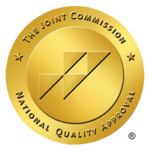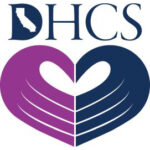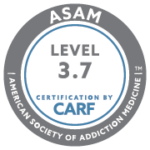Like other mental health conditions, bipolar disorder can make daily life difficult. This can lead to self-medicating with drugs or alcohol to cope with symptoms. Self-medicating with addictive substances is risky because it can lead to addiction, and addiction comes with its own set of problems. Self-medicating with drugs or alcohol can also worsen bipolar symptoms and create even more negative consequences within a person’s life.
The best option for treating bipolar disorder and drug or alcohol addiction is through a recovery program that takes a dual diagnosis approach. Both conditions must be treated at the same time, with strategies that can alleviate stress and/or symptoms of the bipolar disorder without relying on addictive substances for relief.

Formerly called “manic depression,” bipolar disorder is a mental illness where people are likely to experience mood changes that range from manic highs to depressive lows.
Bipolar disorders, including Bipolar I and Bipolar II, are mental health conditions characterized by significant mood swings, and bipolar disorder requires a professional diagnosis to fully determine what type of bipolar disorder the person is experiencing. Cyclothymia disorder, a milder form of bipolar disorder, features these same cycles of emotions taking place with lower intensity or length.
Most people with bipolar disorder are diagnosed in their late teens or early adulthood. The drastic shifts in demeanor can cycle quickly or slowly, depending on the person. Substance use disorder may complicate diagnosis, as it may be unclear what is due to bipolar disorder and what is attributable to drug abuse (or withdrawal symptoms).
Bipolar disorder is a complex mental illness that can manifest differently in different people. The symptoms of bipolar disorder can vary in severity and frequency, making diagnosis challenging. According to the Diagnostic and Statistical Manual (DSM-5), bipolar disorder is characterized by recurring episodes of mania, hypomania, or depression.
The symptoms of bipolar disorder can be divided into two main categories: manic episode symptoms and depressive episode symptoms. Manic episode symptoms may include:
Depressive episode symptoms may include:
If you or someone you know is experiencing symptoms of bipolar disorder, it is important to seek professional help. To diagnose bipolar disorder, a mental health professional will typically conduct a comprehensive evaluation, including a physical exam and other tests to rule out any other possibilities.
Bipolar disorder is a mental illness that can affect anyone, but certain factors increase the likelihood of developing the condition. Genetics play a significant role, as people with a family history of bipolar disorder are at a higher risk.
While gender might influence the presentation of bipolar disorder symptoms, the disorder affects both men and women across all ethnic groups. Social and economic class, religion, or location do not make someone immune from developing bipolar disorder.
Traumatic experiences, such as physical or emotional abuse, can increase the likelihood of developing co-occurring disorders. Environmental factors, such as stressful life events, may also contribute to the onset of the disorder. A history of other mental health disorders, such as depression, may indicate that someone may be suffering from bipolar disorder. It can also make them more susceptible to developing substance abuse.
Substance use itself is a significant risk factor for increased intensity of bipolar symptoms. Many people with bipolar disorder turn to drugs or alcohol to self-medicate their bipolar symptoms, which can lead to addiction and exacerbate their mental health issues. Recognizing these risk factors can help in creating a more targeted and effective treatment approach.
Bipolar disorder is a complex mental illness that can have a significant impact on a person’s mental health and well-being. The condition can affect a person’s mood, energy levels, and ability to function in daily life.
People with bipolar disorder may experience:
Bipolar disorder is characterized by recurring episodes of mania, hypomania, or depression. These mood swings can be intense and unpredictable, making it challenging to manage daily life.
Bipolar disorder can affect a person’s cognitive function on a basic level. It may affect attention, memory, and decision-making
People with bipolar disorder may struggle with emotional regulation, leading to intense emotional experiences that can their actions and relationships. Before diagnosis, they may confuse a manic or depressive episode with true emotions and feel a sense of helplessness.
Bipolar disorder can disrupt sleep patterns, leading to insomnia, sleep deprivation, or irregular sleep schedules.
Bipolar disorder and its effects on a person’s actions can affect a person’s relationships with family and friends, leading to social isolation and feelings of loneliness.
It is essential to seek professional help if you or someone you know is experiencing symptoms of bipolar disorder. With proper treatment, it is possible to manage the condition and improve mental health and well-being.
Like many other mental health disorders, bipolar disorder has the potential to affect a person’s quality of life. This may lead them to attempt to cope through the use of drugs or alcohol. Individuals diagnosed with bipolar disorder may have a higher inclination toward alcohol abuse due to its availability and social acceptance as a comforting and mood-altering tool.
These substances may provide a degree of relief from symptoms of bipolar disorder, but this temporary relief is offset by a significant potential of developing an addiction. This emphasizes the importance of dual diagnosis treatment that takes mental health conditions into account when developing treatment plans for addiction.
Substance abuse also has the potential to worsen symptoms of bipolar disorder over time. Depending on the addictive substance, consistent use may lead to greater anxiety and increased severity of mood swings. The individual may feel a loss of control when using the substance, which can cause distress and a feeling of hopelessness. Addiction can complicate personal relationships, leading to a weaker support system and alienation from support.
Treating co-occurring bipolar disorder and substance abuse requires a comprehensive and integrated approach. Medication management is often a cornerstone of treatment, with mood stabilizers and antidepressants helping to manage bipolar symptoms, while other medications can reduce substance cravings in the crucial initial stages of medical detox.
Psychotherapy is another critical component. Cognitive-behavioral therapy (CBT) and dialectical behavior therapy (DBT) are particularly effective in helping individuals manage their symptoms and develop healthy coping skills. These therapies can address both the mental health disorder and the substance abuse, providing a holistic approach to treatment.
Aftercare and ongoing support are crucial for long-term success in recovering from co-occurring bipolar disorder and substance abuse. Regular individual therapy sessions can help individuals maintain their progress and manage any emerging symptoms. Continued engagement in support groups can provide a sense of community and ongoing encouragement.
Making healthy lifestyle changes, such as incorporating regular exercise and a balanced diet, can support overall health and well-being. Family support is another critical element. Educating family members about co-occurring disorders and involving them in the recovery process can create a supportive environment that fosters long-term success. With the right aftercare and support, individuals with bipolar disorder and addiction can achieve and maintain a stable and fulfilling life.
Here at First Steps Recovery, we’re prepared to help clients address both their substance abuse issues as well as co-occurring mental health disorders like the mental illness bipolar disorder. We’ll support you from detox all the way through your treatment, and our trained staff assist clients in developing the proper tools and coping skills to help ensure relapse is not a part of their future.
Bipolar disorder and addiction don’t have to determine the course of your life. Contact First Steps Recovery today to find out more.

From our certified therapists and nurses to our emotional support animal "Cooper", our entire team is dedicated to the health and success of our clients throughout our program and beyond.
Have questions about how our treatment programs works? Let's talk.
ADHD, or ADD, is a common neurodevelopmental disorder with attention and impulse control difficulties that can lead to substance abuse. Treatment with therapy and medication is crucial.
Anxiety disorder is a mental health condition characterized by excessive and persistent feelings of fear, worry, and apprehension that can significantly impact a person's daily life.
Bipolar disorder is a mental health condition characterized by extreme mood swings, including episodes of mania (elevated mood and energy) and depression (low mood and loss of interest).
Depression is a mental health disorder characterized by persistent sadness, loss of interest, and other emotional and physical symptoms
An eating disorder is a mental health condition characterized by abnormal eating habits. Getting help is important to address physical and psychological health risks, improve quality of life, and promote recovery.
Personality disorder is a mental health condition characterized by unhealthy patterns of thinking, behaving, and relating to others. Getting help is crucial to improve relationships, coping skills, and overall well-being.
PTSD (Post-Traumatic Stress Disorder)/Trauma disorder is a mental healtah condition resulting from experiencing or witnessing traumatic events. Getting help is important to process trauma, reduce symptoms, and improve overall quality of life.
Schizophrenia is a mental health disorder characterized by hallucinations, delusions, and disorganized thinking. Getting help is vital to manage symptoms, improve functioning, and enhance overall quality of life.
Have questions about our substance abuse treatment programs? Let’s talk.
Dayatra L.
Melissa B.
Bruce G.
Have questions about how our alumni program works? Let's talk.












© 2024 First Steps Recovery | Privacy Policy | All Rights Reserved.

Have questions about First Steps Recovery? We're here to help.
© Copyright 2023 • First Steps Recovery • All Rights Reserved